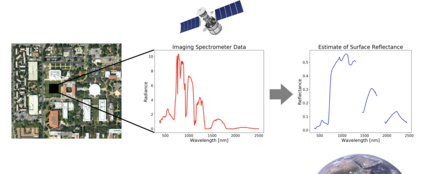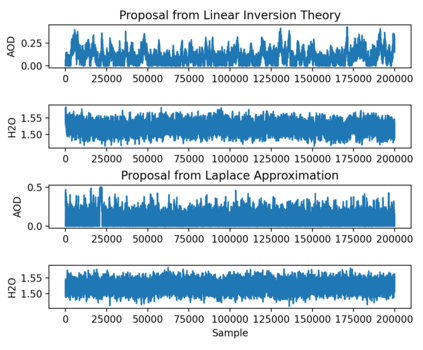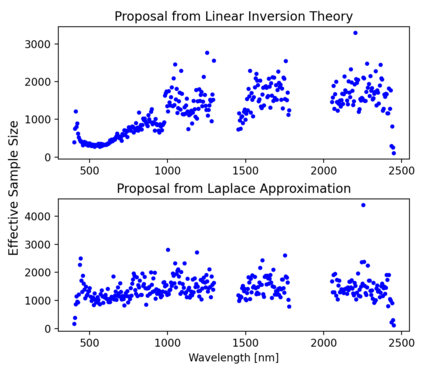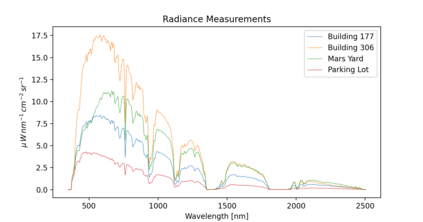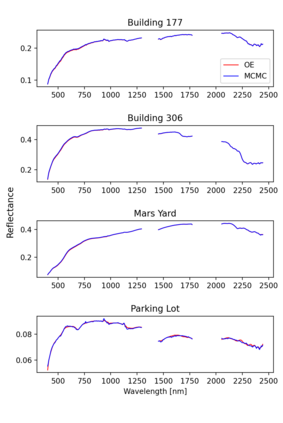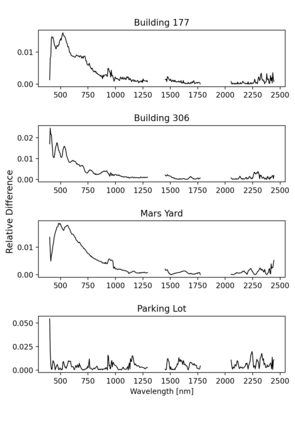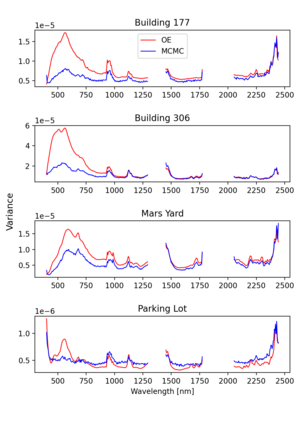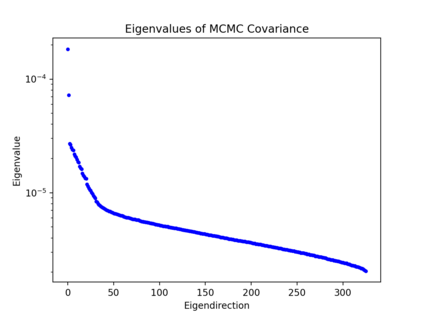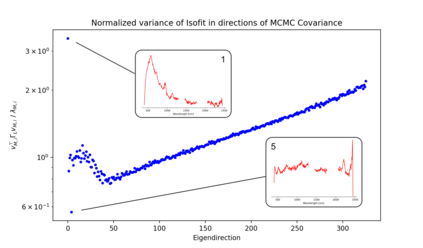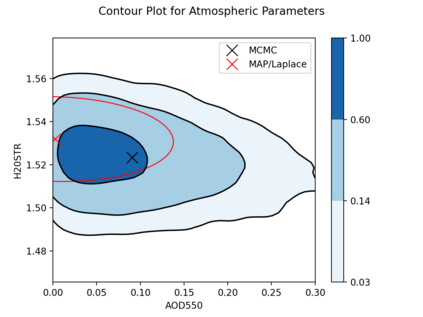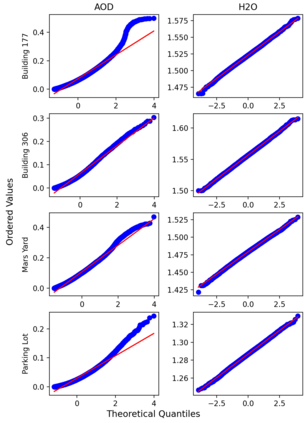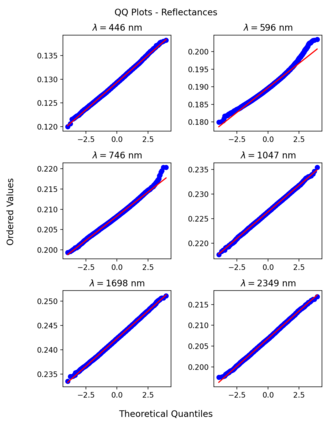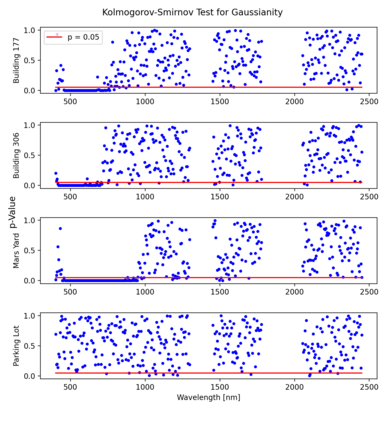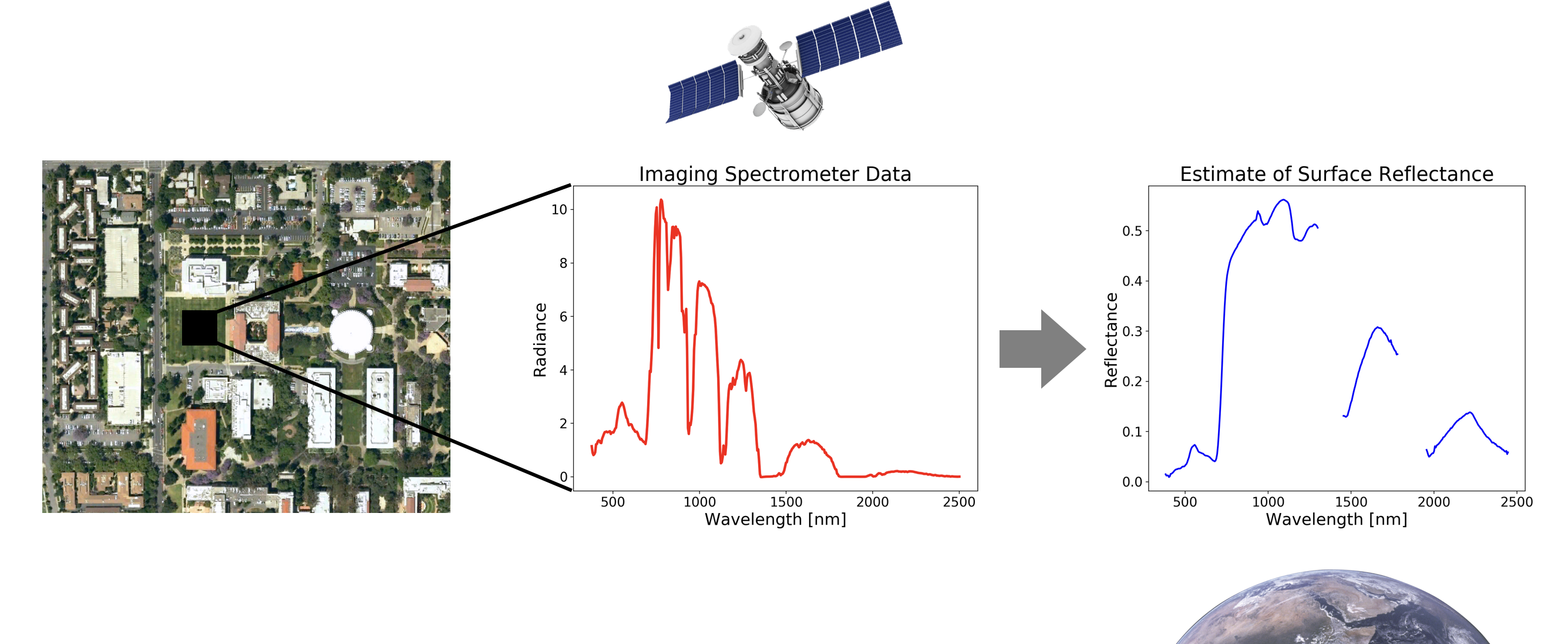The joint retrieval of surface reflectances and atmospheric parameters in VSWIR imaging spectroscopy is a computationally challenging high-dimensional problem. Using NASA's Surface Biology and Geology mission as the motivational context, the uncertainty associated with the retrievals is crucial for further application of the retrieved results for environmental applications. Although Markov chain Monte Carlo (MCMC) is a Bayesian method ideal for uncertainty quantification, the full-dimensional implementation of MCMC for the retrieval is computationally intractable. In this work, we developed a block Metropolis MCMC algorithm for the high-dimensional VSWIR surface reflectance retrieval that leverages the structure of the forward radiative transfer model to enable tractable fully Bayesian computation. We use the posterior distribution from this MCMC algorithm to assess the limitations of optimal estimation, the state-of-the-art Bayesian algorithm in operational retrievals which is more computationally efficient but uses a Gaussian approximation to characterize the posterior. Analyzing the differences in the posterior computed by each method, the MCMC algorithm was shown to give more physically sensible results and reveals the non-Gaussian structure of the posterior, specifically in the atmospheric aerosol optical depth parameter and the low-wavelength surface reflectances.
翻译:暂无翻译

